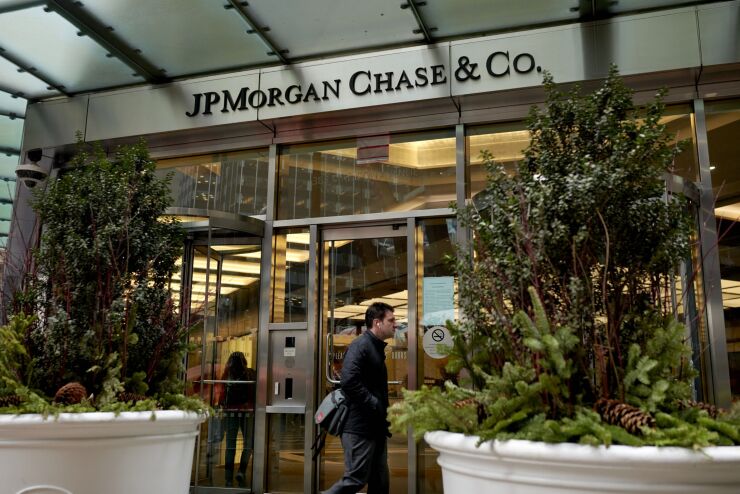
(Bloomberg) --A year after a wave of speculation broke out over its application to trademark the word "IndexGPT" in connection to an unspecified artificial intelligence-powered tool,
IndexGPT is a new range of thematic investment baskets created with the help of OpenAI's GPT-4 model. The tool generates a list of keywords associated with a theme, which are then fed into a separate natural language processing model that scans news articles to identify companies involved in the space.
In essence, it's a largely automated way to create so-called thematic indexes, which identify investments based on emerging trends — think cloud computing, e-sports or cybersecurity — rather than on traditional industry sectors or company fundamentals.
It's the latest Wall Street attempt at riding the investor frenzy for all things AI, which fans say has the capacity to usher in a new era of accelerated economic growth. The excitement has helped big tech companies power US stocks to repeated record highs over the past year.
Compared to that hype, IndexGPT is far from a revolution in the world of finance, where an assortment of tech-led firms and quant traders are trying to master the markets with AI. Yet finding fully-validated use cases in a highly-regulated industry where missteps can cost millions is famously a challenge.
Rui Fernandes,
"It's about being able to select a broader range of stocks that are not necessarily the obvious companies that everyone already knows about," he said in an interview. "We are constantly looking for ways in which we can improve all our offerings, from equity volatility products to commodity momentum products. But we want to do it in a gradual, thoughtful, progressive way."
The embedded banking services Amazon offers to third-party sellers come from the hidden hand of JPMorgan Chase's corporate payments arm, which markets its services to e-commerce platforms on a white-label basis.
AI systems have been widely used by Wall Street for years, with banks spending billions to automate functions like trading, risk management, fraud detection and investment research. But the rapid rise of generative AI tools — the content-creating technology behind ChatGPT — has lenders
Morgan Stanley has developed an internal chatbot for its financial advisers based on OpenAI's technology. Goldman Sachs Group Inc. is using generative AI to assist its developers in writing software code. Citigroup Inc. turned to AI to read through 1,089 pages of new capital rules on the US banking sector.
In November, Lori Beer,
Thematic funds were a red-hot part of the investment world in 2020 and 2021, when retail investors poured billions into products based on everything from robots to marijuana. But interest has soured in many strategies amid a combination of poor performance and higher interest rates. Bloomberg Intelligence data show thematic ETFs posted $4.6 billion in outflows last year, the worst in data going back to 2001.
The GPT model generates more than twice as many keywords compared to previous software, creating "a superior representation of the theme," according to Fernandes. The indexes it helps create are targeted to institutional clients who can gain exposure through products like structured swaps or notes, but Fernandes also sees potential for its use in trend-following strategies.
"Being able to very quickly have a stock selection methodology that represents that theme at inception is very important for that type of investor because their holding horizon is not necessarily a matter of years, it's shorter in time," he said. These clients "really want to be able to pick up emerging themes and ride that momentum," he said.






